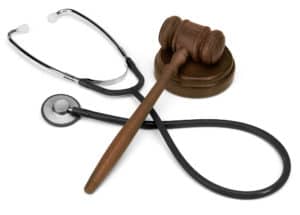
In the healthcare world, a judgment of medical malpractice can ruin a doctor or nurse’s entire career. The anxiety and stress of a potential lawsuit have many doctors practicing what is known as defensive medicine. Defensive medicine is a practice that focuses more on preventing a lawsuit than helping the patient. This can lead to the worsening of a patient’s condition, or in the worst cases, wrongful death. Here is an outline of what defensive medicine is and how it negatively impacts the patients and the healthcare system as a whole:
The Practice of Defensive Medicine
Defensive medicine is the process of a doctor practicing medicine in a manner designed to prevent legal action should a problem occur. A doctor practicing defensive medicine often goes beyond what is necessary to effectively treat the patient. They do this to ensure that they are not missing any possible condition, no matter how unlikely that condition is to occur. This includes performing procedures that the patient wants or expects to have done, even if they do not need them.
Defensive medicine leads to overtesting and overtreatment, resulting in an increase of the patient’s personal medical bills and causing the cost of healthcare to rise. While defensive medicine may help the doctor prevent a possible – though unlikely – poor outcome, defensive medicine usually causes more harm than good. For example, talented doctors and physicians may cherry-pick who they treat. By avoiding high-risk patients, doctors are almost guaranteed to have positive outcomes. This helps prevent the likelihood of a potential lawsuit; unfortunately, it leaves those who desperately need a doctor’s help unable to get it, resulting in them suffering for longer.
What are the Potential Costs of Defensive Medicine?
 Doctors and healthcare centers actually make more money from practicing defensive medicine. This is because they are running more tests and procedures, meaning that their patients are paying more. Defensive medicine may help the doctor avoid litigation, but it also results in high-dollar medical bills that the patient may not be able to pay.
Doctors and healthcare centers actually make more money from practicing defensive medicine. This is because they are running more tests and procedures, meaning that their patients are paying more. Defensive medicine may help the doctor avoid litigation, but it also results in high-dollar medical bills that the patient may not be able to pay.
What are the Potential Dangers of Defensive Medicine?
The main concern surrounding defensive medicine is overtreatment. Overtreatment can cause a patient’s body or the disease within them to develop an immunity to the medicine being subscribed. This causes stronger strands of the virus or disease to develop and less effective medicine, thus increasing the risk of a patient getting sicker.
Defensive medicine is a double-edged sword in the world of medicine. The risk of improperly treating the patient or preventing them from getting care outweighs the risk of a potential lawsuit. A competent doctor should be able to act on their knowledge and instincts and provide care based on the patient’s specific needs. While doctors may use defensive medicine as a shield, it can still be considered malpractice if you or a loved one is harmed by it.
If you or a loved one has received improper medical care due to the practice of defensive medicine, contact Branch & Dhillon, P.C. We’ll help you claim the compensation you deserve for damages and medical expenses.

